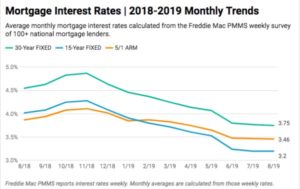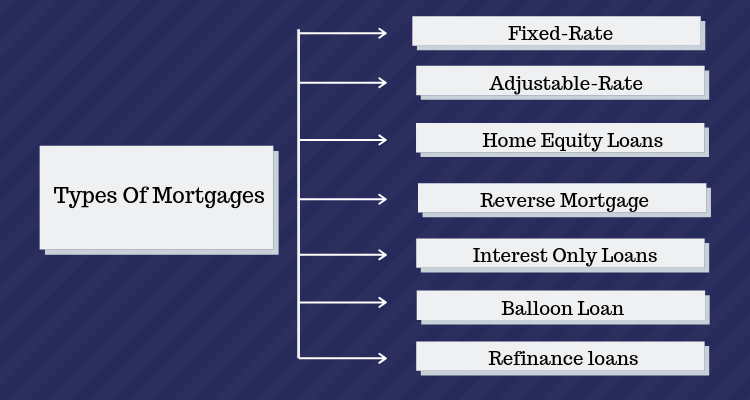And it can supplement your portfolio with distinct benefits consisting of portfolio diversity, and tax advantages. Despite obvious advantages, investing in property can seem daunting without an apparent starting point. That doesn't have to hold true, however. In this short article, we discuss the fundamentals of genuine estate investing, including eight different manner ins which you can start right away.
Property normally breaks down into 4 categories: property, commercial, commercial, and land. Residential property: Residential realty consists of single-family houses, multi-family houses, townhouses, and condominiums. Occupants may lease or own the properties that they reside in. Residences larger than four units are typically considered business residential or commercial property. Commercial genuine estate: Industrial property is property that is utilized for the function of business.
Some examples of business realty residential or commercial properties consist https://gumroad.com/thoinekpim/p/how-what-is-the-interest-rate-on-reverse-mortgages-can-save-you-time-stress-and-money of service workplaces (workplace), restaurants (retail), and big apartment structures (multi-family). Industrial genuine estate: As the name recommends, these residential or commercial properties serve a commercial business function. Some examples include shipping or storage warehouses, factories, and power plants. Land: Land usually includes undeveloped home without any structures on it.
Landowners can generate income through land use, such as agriculture, or upon the advancement or sale of the land. In addition to home types, there are 3 main methods to earn money from realty financial investments: interest from loans, appreciation, and rent. Interest from Loans (or, in the parlance of property, "financial obligation"): A real estate loan is a plan where financiers provide cash to a property developer and generate income from interest payments on the principal of the loan.
Depending upon the variety of lenders, there can be one or several kinds of debt within the capital stack of loans. Types of financial obligation include senior debt, junior financial obligation, and mezzanine debt. Financial obligation can also be protected or unsecured. This distinction defines a financier's rights in the occasion of a home's foreclosure upon the default of a loan.
The Facts About What Bank Keeps Its Own Mortgages Uncovered

Interest payments may use a method to earn passive earnings from genuine estate investments. Appreciation: Just like the ownership of any equity, property ownership provides a financier the ability to generate income from the sale of that equity. The gratitude, or increase in the value of a home in time, represents the potential profit available to an investor when that residential or commercial property is offered.
Equity can normally be categorized as favored equity or typical equity. Equity ownership can be an active or passive financial investment depending upon the position of the investment within the capital stack. Rent: A residential or commercial property can be leased by owners to earn income from rental payments. Similar to the income produced from a debt financial investment, rental income can provide a routine income stream (what act loaned money to refinance mortgages).
Rental payments may provide the capacity for passive income depending on the financial investment approach. Each category of genuine estate and kind of investment carries its own set of dangers and rewards. Regardless of how you buy property, it is very important to pick investments sensibly by testing the strengths and weak points of chances through a strenuous underwriting process.
Lots of investors like to use the forecasted rate of return as a key metric when examining property. Nevertheless, more skilled real estate financiers will frequently rely on capitalization rate, or "cap rate," as a favored method to evaluate an opportunity. There are many methods to invest in real estate with varying quantities of money, and varying degrees of time dedication, capital, financial investment horizons, risk, and return possible.
Property financial investment methods fall into 2 groups: active and passive investments. Here are eight fundamental methods to invest in realty with techniques ranging from intense, high-effort to hands-off, low-effort. Active genuine estate investing demands significant individual understanding of realty and hands-on management or delegation of duties. Active investors can work as investor part-time or full-time, depending upon the variety of their financial investment residential or Visit the website commercial properties and the nature of those financial investments.
The smart Trick of How Is The Compounding Period On Most Mortgages Calculated That Nobody is Talking About
Because of this, active investor require a deep understanding of how to invest in genuine estate, including financial acumen, and settlement abilities to enhance their cap rate and overall return on financial investment. House-flipping is the most active, hands-on method to purchase property. In a home flip, an investor purchases a home, makes changes and remodellings to enhance its value in the market, and after that offers it at a greater price.
This gnaws at their return potential when they sell it. Investors can fix or refurbish the house to increase its sale cost or offer it without making any repairs when its worth in the real estate market boosts due to outside aspects. If you see HGTV, then you've most likely seen a home get transformed in under thirty minutes and sold for a large revenue by house-flipping specialists.
While house-flipping is amazing, it likewise needs deep monetary and property knowledge to make sure that you can make over the house within time and spending plan restraints to ensure that you earn money when the home is offered. The success and the monetary concern of a home flip falls completely on the financier.
It's a high-pressure and high-stakes property financial investment that makes for great TV, but a great investment opportunity only for certain knowledgeable financiers. Another property-flipping technique is wholesaling. Wholesaling is when an investor indications a contract to purchase a residential or commercial property that they think is priced below market value and after that sells that contract rapidly to another financier at a higher cost for an earnings.
An investor will sign a contract to purchase a property and put down an earnest cash deposit. Then, they quickly attempt to offer the home to a house-flipper at a premium, earning an earnings. Basically, a wholesaler gets a finder's cost for brokering a house sale to a house-flipper. Nevertheless, unlike standard home brokers, a wholesaler uses their position as the contracted homebuyer to broker the offer.

Examine This Report about What Is The Maximum Debt-to-income Ratio Permitted wesley group For Conventional Qualified Mortgages
It demands noise due diligence and access to a network of possible buyers in order to offer the residential or commercial property within a short timeframe at a lucrative price. Otherwise, like house-flipping, you run the risk of not making a profit or, worse, losing cash. Rental properties need hands-on management, too, however they have a long-lasting investment horizon.
Residential or commercial property owners earn regular money circulation generally on a month-to-month basis in the form of rental payments from tenants. This can supply a steady, reputable earnings stream for investors, however it likewise requires a lot of work or delegation of responsibilities to ensure that operations run smoothly. First, you should discover renters for your home.
You are also responsible for carrying out background screenings for prospective tenants (if you choose to) and for offering lawfully sound lease agreement contracts to renters. For each month that you do not have an occupant, you miss out on earnings from your investment. Once you have occupants, you have quite a bit more resultant responsibilities.